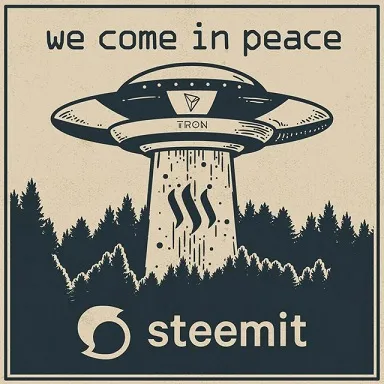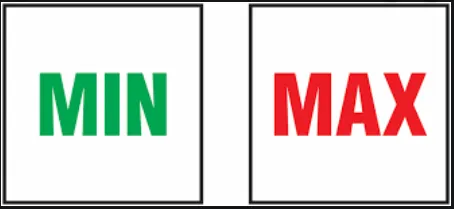
When I first arrived on the crypto scene back in late 2017 I was very gung-ho about researching as much as I could about crypto. The 2017 bull run, while clearly overbought, made me realize that Bitcoin and blockchain were no longer something I could ignore. I had questions, and the Internets had some of the answers lined up for me on a silver platter.
However, my questions about crypto started to become so niche and targeted on specific subjects that Google would often lead me down a rabbit hole and begin to point to sources that I wasn't necessarily sure were accurate. I began to read random blog posts. Sometimes from Medium. Sometimes from Quora. Sometimes from a random website named Steemit.com

WTF is Steemit.com?
Google kept sending me there over and over again. Some of the information I was getting on Steemit was really good and couldn't be found anywhere else. It was so focus-fired on crypto topics, and I wondered why that was. I also found it intriguing that at the end of posts the authors were being... paid? In dollars? That's weird. Maybe I should start a blog on Steemit... how does this thing even work?
You see I had no idea that Steemit.com was even linked to Steem or that it was even a crypto network. All I knew was that Google kept sending me there because the questions I was asking were only being answered on Steemit. It's so surreal to think about how this all went down six years later. Like remembering a dream I had once.
Eventually one day I was looking at CoinMarketCap.com and I saw the Steem token listed in the top 100 (ah remember those days? Soon™). And I was like, oh... duh... Steem must be connected to Steemit... it's literally a meta crypto blogging site. How weird.
Luckily I was easily able to leverage Steemit.com posts to learn more about Steem. Try doing that with Bitcoin or Ethereum... good luck with that. What are you gonna do? Learn to code and then spend 5 years deciphering the codebase on your own? Yeah, that's the best way to learn, said no one ever.

And so my journey began.
I was learning a lot and thirsty for more. I wrote blog posts on what I learned and earned a few pennies for my troubles while others were earning thousands of dollars for definitively lower quality work. But that's the thing about networking isn't it? It's about who you know, and I didn't know anyone.
So I quickly realized that the best way to get noticed was writing comments on other blogs that actually had engagement, while continuing to post once a day. Sometimes someone else's post would have content that was extremely relevant to something I had written, so I'd comment and link back to my own post on the same topic. This was a time when everyone and their mother was trying to get in on the gigantic upvotes floating around, and I was told more than once that shilling my own work could get me downvoted.
But I decided that was stupid advice because the other people doing that would shill their own work blindly regardless of what the topic at hand was... and clearly that's not what I was doing. Pretty much all of those people that gave me bad advice are long gone at this point, and I have far surpassed whatever peak they hit on this network. Go me. Aren't I wonderful?
In any case, the amount of research I did back then was way way more than it is now. Is that a bad thing? Have a gotten lazy? Or is this just the natural over of things? Think back to 2017 and 2018. What was I researching? Mostly a bunch of shitcoin ICOs that are long dead; a bunch of broken dreams and failed promises. A lot of the research I did and things I believed at the time turned out to be complete bullshit... so why would I continue down that path when I could just shore up my defenses and focus on Bitcoin, Ethereum (EVM), and Steem/Hive/DPOS?
We can apply this same logic to Bitcoin maximalism. Those who got into the game early way back in say 2011 or 2012 or whatever... they did so much research on Bitcoin. They got rich off of Bitcoin. It's a tight-knit community. So when other tokens come along like Litecoin or Ethereum, why would they even bother to give it the time of day? We can see that a lot of them would not and did not. It's a path that makes sense. Tribalism isn't going to go away just because decentralization is coming.
There's also the financial side to this as well. Many maximalists did indeed get involved with alts, but it was usually during the middle of the FOMO cycle and the reason why alts ballooned their market caps so ridiculously when Bitcoin was doing well. We all know how this story ends.
It ends with everyone who FOMOed into alts getting crushed even worse than Bitcoin's massive retracements. And then when things happen like Ethereum going proof-of-stake even though the distribution is heinously centralized... should we really expect maximalists to take any altcoin seriously? Even the moniker "altcoin" implies "not Bitcoin" which in turn implies "shitcoin".
Take Hive for example.
Imagine how much research it would take into Hive before anyone came to the conclusion that it was actually decentralized. First of all, it's only been around since 2020 and has already experienced systemic failure under the Steem brand. That alone is enough to make the assumption that it can and will eventually fail again. I mean no one here expects it do but we have to use the perspective of someone on the outside looking in.
Also, Hive isn't even in the top 200 market cap right now. How many shit projects would one have to research before they even found it? Our marketing has been lacking since inception, and even the brand Hive is extremely ambiguous and could mean a dozen different products, codebases, or companies. This is fine once enough frontends are built on top of it and Hive itself falls into the background as the intended operating system, but until then we must admit it is a bit confusing.
Looking at the top 200 market cap, it's very hard to tell what is decentralized and what isn't. Everyone makes the claim that their project is the best project that has all the best attributes (fast, scalable, decentralized, valuable, etc). Wouldn't it be much easier to find something that works for you and just make the claim that everything else is shit? We can see that this is a popular strategy that makes sense in many given contexts. Tribalism being the main one.
I seem to recall this exact thing happening for tokens built on Hive as well. Users start to view the new tokens as "the enemy" and assume that the new tokens are leeching value away from the "real" decentralized product. It doesn't have to actually be true. Sometimes perception is reality.

Conclusion
Have I gotten lazy, or is this just the natural order of things? I could have done a lot more research on DEFI in 2020 and 2021, but wouldn't that have led to the exact same result as my research on ICOs in 2018? At a certain point I think everyone needs to learn to capitulate, consolidate, and retreat from the cutting edge. The cutting edge is way too volatile and stressful. Fun place to visit: wouldn't want to live there.
All this being said, Hive is still cutting edge tech in many regards. The difference being that is it a cutting edge network that I can actually still trust and I don't have to consider it a degenerate gamble by sticking around. Show me another network where one can earn money for the work that they do. It truly just does not exist in the same capacity as Hive.
We have the incentives and the ability to scale in a decentralized manner. I've yet to see other projects that can even come close. Of course this isn't that say that they don't exist, because as the theme of this post implies: I'm not really looking. If they want my attention within the attention economy, they're going to have to prove themselves to me on their own merit. Just like Hive will eventually have to prove beyond any reasonable doubt that it has value to Bitcoin maximalists. That's just the name of the game.
